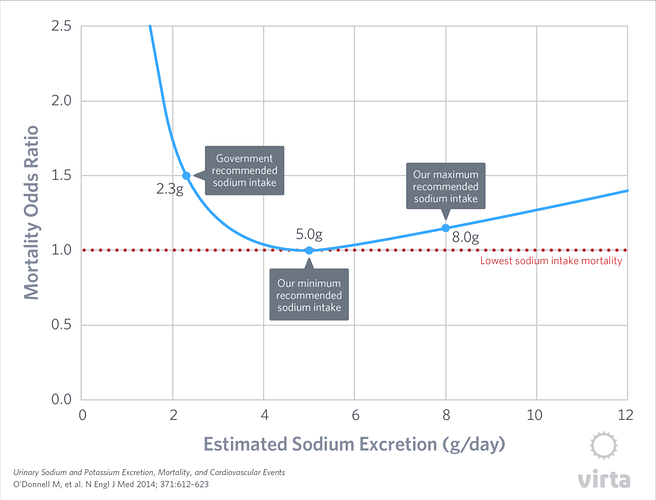Hi all,
Some of you know that I’ve been researching the Keto and salt link and the Keto and diuretic and electrolyte link, trying to understand it.
For some reason (perhaps because I am TOFI and not doing Keto for weightloss, or perhaps due to a genetic predisposition) I have not experienced Keto as diuretic or required additional salt.
In fact, I developed some scary health problems (heart and muscles) when I elevated my salt intake to that of fellow Keto’ers.
So I’ve been trying to research what the Keto and salt link is and trying to understand why my salt need/ tolerance is different to that of many here.
I found this article (thanks to @mtncntrykid !) by Phinney and Volek on their “Virta” website and this has been the most detailed, well-explained, scientific explanation re Keto, salt, electrolytes, kidneys, diuretic effect that I’ve read so far.
https://blog.virtahealth.com/sodium-nutritional-ketosis-keto-flu-adrenal-function/
It’s called “Sodium, Nutritional Ketosis, and Adrenal Function”
It doesn’t really explain yet, why I and some others are not experiencing this effect to the same degree that others are, but there are indications of what to look at.
I’m not experiencing big weight loss, I’m not experiencing big water weight loss, unlike some fellow Keto’ers I’m not a sporty person - I don’t run, cycle or lift weights so am not sweating as much, my body may be producing/ using Ketones more efficiently than others as I have 10 years experience of extended fasts, and so on and so forth.
I will keep researching this, as I find it a really interesting topic and am grateful for any scientifically sound tidbits of information anyone can add as a piece of the puzzle.


 )
) a bit of headache but not dizzy. Panicked & headed for a snack & asked for some table salt - about 2 pinch-ful. Checked again an hour later & phewwwww went back up to 100/70 my normal level
a bit of headache but not dizzy. Panicked & headed for a snack & asked for some table salt - about 2 pinch-ful. Checked again an hour later & phewwwww went back up to 100/70 my normal level 
